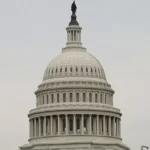Louisiana's legislature has taken a groundbreaking step by unanimously passing a bill that prohibits the enforcement of any rules, regulations, fees, taxes, policies, or mandates imposed by the World Health Organization (WHO), United Nations (UN), and World Economic Forum (WEF) within the state. This legislative move signifies a robust defense of state sovereignty and a clear rejection of external interference in local governance.
The Bill's Provisions and Implications
The bill explicitly states that these international organizations shall have no jurisdiction or power within Louisiana, safeguarding the state from the potential overreach of global entities. This legislative action is seen as a preemptive measure to maintain autonomy over state affairs, particularly in response to initiatives like the UN Agenda 2030 and the WHO pandemic treaty, perceived as threats to national sovereignty.
Louisiana's Message to the World
By passing this bill, Louisiana sends a strong message against the influence of unelected international bodies on domestic policies. The legislation not only champions the principle of state rights but also aligns with the growing sentiment among citizens for greater transparency and accountability in governance. This move by Louisiana could inspire other states to assert their sovereignty and scrutinize the influence of global organizations on local decision-making processes.
Louisiana's legislative decision to ban the enforcement of regulations from WHO, UN, and WEF within its borders is a significant stride toward protecting state sovereignty and ensuring that local governance remains free from undue global influence.
Strategic Legislation for State Autonomy
The Louisiana Senate's decision to pass the bill ending state and local cooperation with international organizations like the UN and WHO marks a strategic move to reinforce state autonomy. By prohibiting the enforcement of any regulations, fees, or mandates imposed by these bodies, Louisiana is setting a precedent for how states can assert their sovereignty and resist external influences on their internal affairs.
This legislation, grounded in the anti-commandeering doctrine, emphasizes the state's right to direct its resources as it sees fit, free from the command of international entities. The unanimous support for the bill in the Senate reflects a bipartisan consensus on the importance of maintaining control over local governance and protecting the state's citizens from potential overreach by global organizations.
Louisiana's Proactive Stance on Sovereignty
The Louisiana Senate's unanimous passage of Senate Bill 133, which blocks the influence of the WHO, UN, and WEF within the state, is a significant development. This legislation, spearheaded by Republican state Senators Valarie Hodges and Thomas A. Pressly, along with state Rep. Kathy Edmonston, underscores Louisiana's commitment to safeguarding its sovereignty from globalist encroachments.
The bill’s comprehensive prohibition against implementing or enforcing any mandates from these international entities is a robust assertion of state rights and autonomy. This legislative success is not only a testament to the state's proactive approach to preserving its self-determination but also serves as a beacon for other states considering similar measures to protect their jurisdiction from external influences.

Carl Riedel is an experienced writer and Open Source Intelligence (OSINT) specialist, known for insightful articles that illuminate underreported issues. Passionate about free speech, he expertly transforms public data into compelling narratives, influencing public discourse.

















